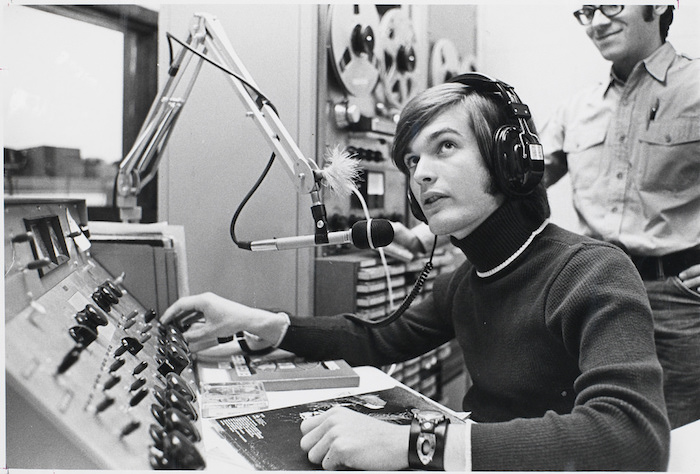Public radio, as a field of employment, attracts a certain personality. It calls to a person who wants to be heard, but not recognized; who is interested in other people but still might be happier communicating with strangers from the isolation of a studio or behind the buffer of a microphone than meeting them at an actual social event. This makes radio networking events awkward at first; a room filled with shy, but deeply earnest, people can take a while to warm up.
“We prefer disembodied intimacy,” said Jay Allison last Friday at one of the opening events at the Third Coast International Audio Festival, the biggest documentary radio gathering in the world, held in Chicago. This year, the conference began with an especially muted mood, beginning just three days after an election that the media had generally failed to predict, and that most people working in public radio consider tragic. There was no pretense during any of the opening talks that the election was anything if not a catastrophe, no pretending at objective journalistic distance from what had happened.
The first panel, on Saturday morning, was about the election. A sense of collective failure permeated the discussion, led by Bob Garfield, who hosts WNYC’s On the Media. Garfield has spoken out against members of the media who treat Trump like any other candidate since the beginning of his candidacy, and has been accused of being unduly subjective for doing so. But members of the panel, which also included Latino USA’s Maria Hinojosa, NPR’s Sam Sanders, and This American Life’s Zoe Chase, noted other problems the election had highlighted: the media had not taken Trump seriously as a threat, but public radio had also had failed to sufficiently understand and reach potential Trump supporters, as well as the people who Trump was most likely to hurt. Too many public radio reporters are white and from middle class backgrounds, and, while they may find Trump’s proposed policies abhorrent, they remain relatively safe from their effects.
The optics of the panel reflected some of American public radio’s diversity problems, but it also reflected slow change; Garfield, the “authority” of the panel, was an older white man, like many of the hosts on public radio news shows. But Garfield seemed to be a willing target for criticism from Hinojosa, who is from Mexico, and Sanders, who is black. After Garfield explained how his instinct after Trump’s election was to yell, to warn people about the impending “state of emergency,” Sanders explained that for him, yelling is not an option. “I walk through the world every day as a six-foot-tall black guy with no hair on his head and a beard,” he said, “I don’t get to do it.” Garfield asked if he should use his white privilege to do the yelling for him, which Hinojosa and Sanders met with an emphatic “no!” Hinojosa did say, however that the audience should acknowledge their privilege: “there is extraordinary privilege in this room. You all need to look at yourselves.”
The problem was not only the public media itself, but its audience. Zoe Chase described her frustration with social media after reporting a story about a black, gay 17-year-old from South Carolina, who declared himself a Trump supporter. Chase empathetically reported that the teenager had come to the conclusion that Trump was the only candidate for him, in an attempt to reconcile his adopted parents’ republicanism with his own sexuality; early in his campaign, Trump hadn’t rescinded his support of gay marriage. It was an eye-opening story, but Chase regretted how much scorn the teenager, suddenly in the spotlight, endured on social media. She seemed worried that by portraying the perspective of someone who was young, vulnerable, and who happened to disagree with the views of the typical public media audience, she had made him even more exposed.
Sanders pointed out that in order to report on and understand the diverse array of people in this country, you need to listen as though you’re no better than anyone else. Public radio audiences could use this advice, too.


